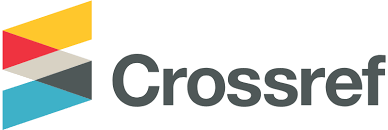DEPICTION OF PRINCESS MERIDA IN DISNEY PRINCESS MOVIE “BRAVE” DIRECTED BY MARK ANDREWS AND BRENDA CHAPMAN
Abstract
This study discusses the depiction of Princess Merida. The objectives of the research are to find out what kind of characteristics that represent Princess Merida and to find out how the characteristics that Princess Merida has made her special from other Disney Princesses. Qualitative method is used in this research. Data collection in analyzing movie Brave is used by watching the movie repeatedly, reading the summary, making synopsis, taking some notes, understanding the script, identifying the words or dialogues, reading some journals or articles and finding some references on the internet related to the analysis. The research questions are focused on analyzing the characteristics of Princess Merida. The research questions are to find: (1) the kind of characteristics that represent Princess Merida and (2) the characteristics that Princess Merida has makes her special from other Disney Princesses. From those research questions, the writer found that this research exposes how Brave movie represented princess seen from Princess Merida’s characters, habits, and appearance by showing the evidence through pictures and dialogues in the movie
References
Freedman, J. (2001). Concepts in social science : Feminism,
Gass, W. H.(1998) The concept of the character in fiction, Ed. Michael J. Hoffman. London: Duke University press
Gill, R. (1995). Mastering English literature. London: Macmillan Press.
Janovsky, A. Character in literature: definition, types & development. Retrieved August 1, 2018, from https://study.com/academy/lesson/character-in-literature-definition-types-development.html
Boggs, J.M. (1991). The art of watching film 3th ed., California: Mayfield Publishing Company.
Kaushik, N. (2011), August 13. Difference between qualitative data and quantitative data, Retrieved August 26, 2018, from https://www.differencebetween.net/science/mathematics-statistics/difference-between-qualitative-data-and-quantitative-data/
Kupperman , J. J. 1991. Character. New York: Oxford University Press
Laughlin, Thomas M. (1989). Literature the power of language. USA: Harcourt Brace Jovanica.
Moleong, L. J.(2005). Metodologi Penelitian Kualitatif. Bandung: PT Remaja Rosdakarya,
Copyright (c) 2020 Matresia Aprilia, Bejo Sutrisno

This work is licensed under a Creative Commons Attribution-NonCommercial-ShareAlike 4.0 International License.
Retained Rights/Terms and Conditions of Publication
1. As an author you (or your employer r institution) may do the following:
*make copies (print or electronic) of the article for your own personal
*Every accepted manuscript should be accompanied by "Copyright Transfer Agreemen" prior to the article publication.









